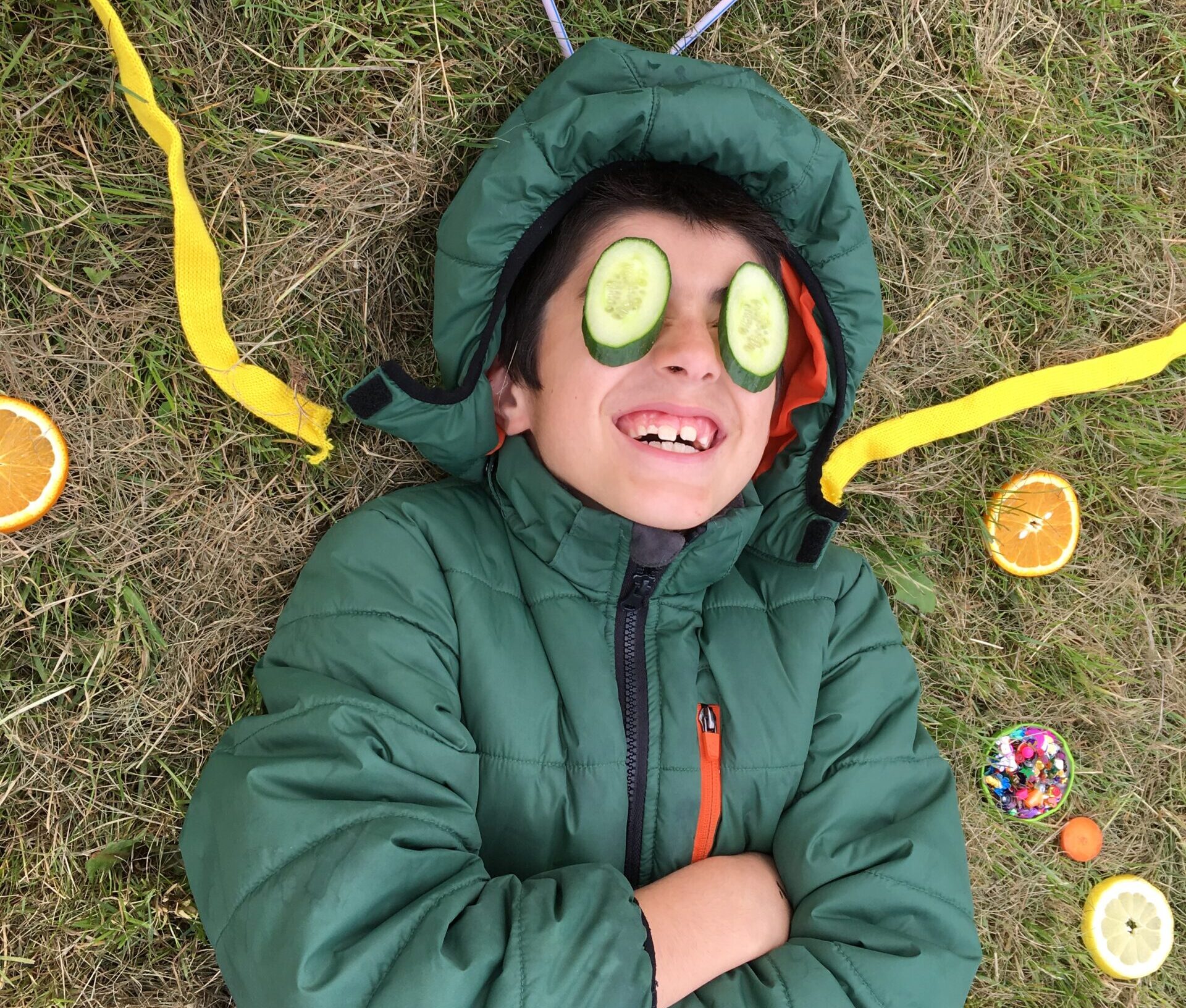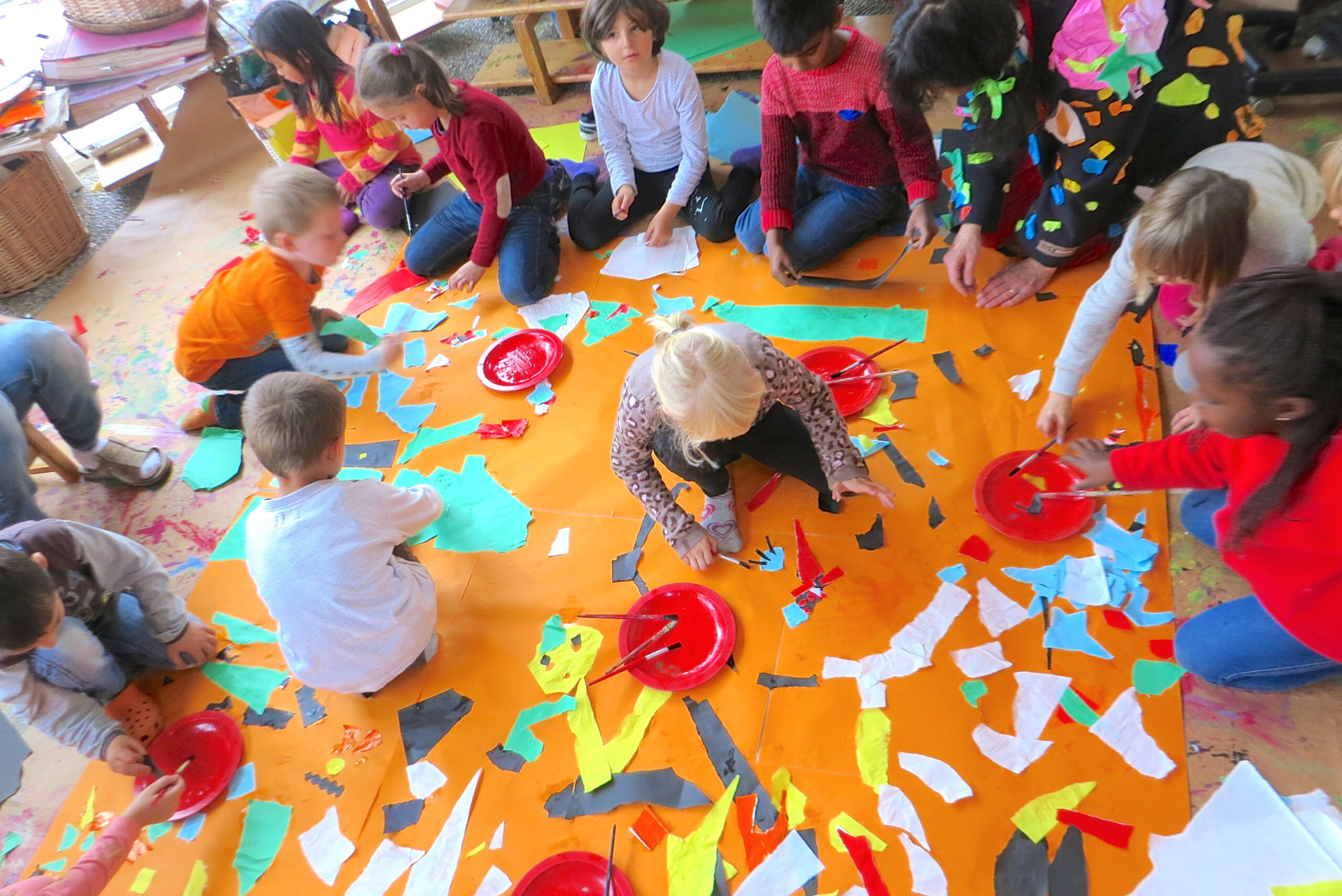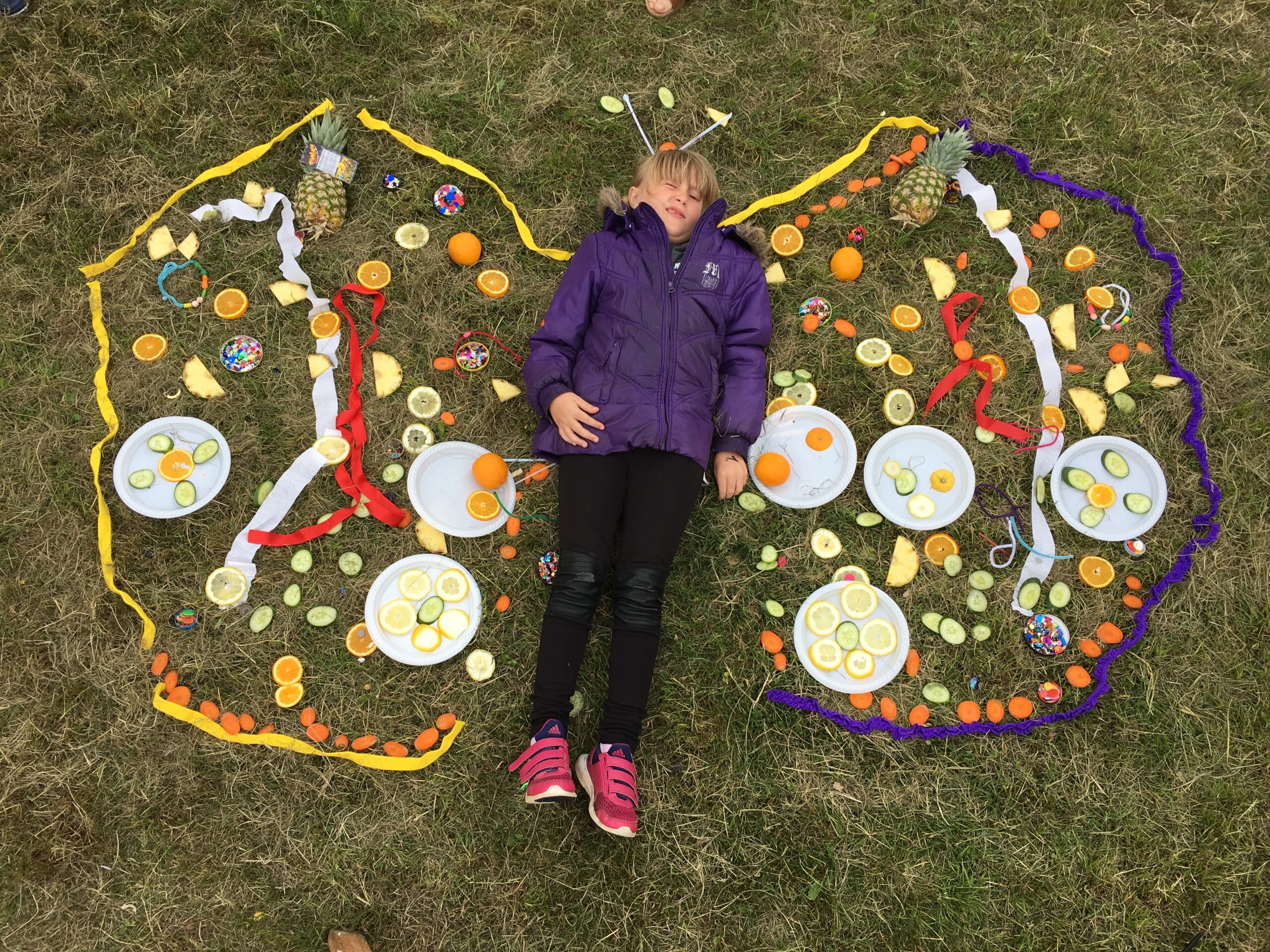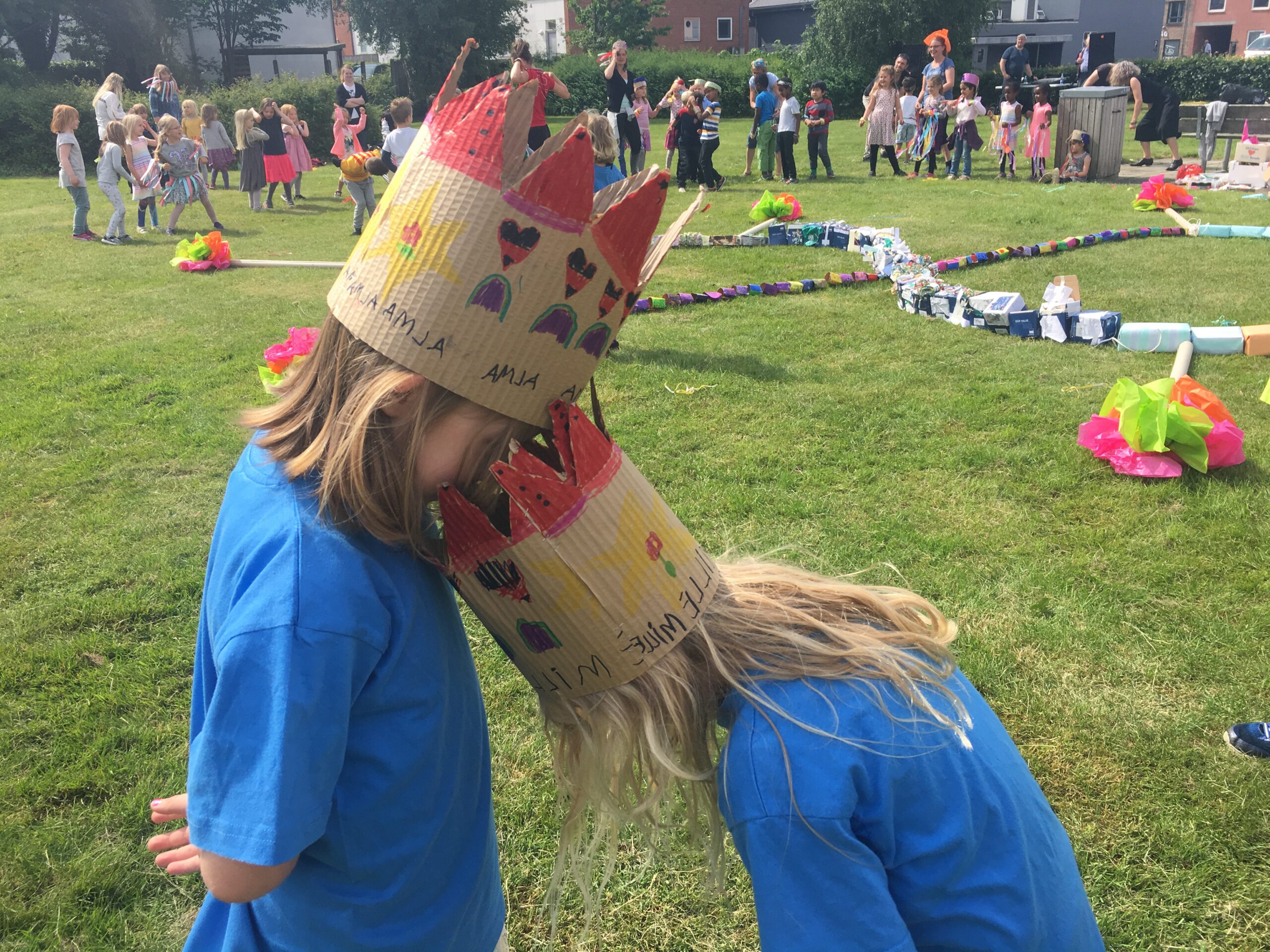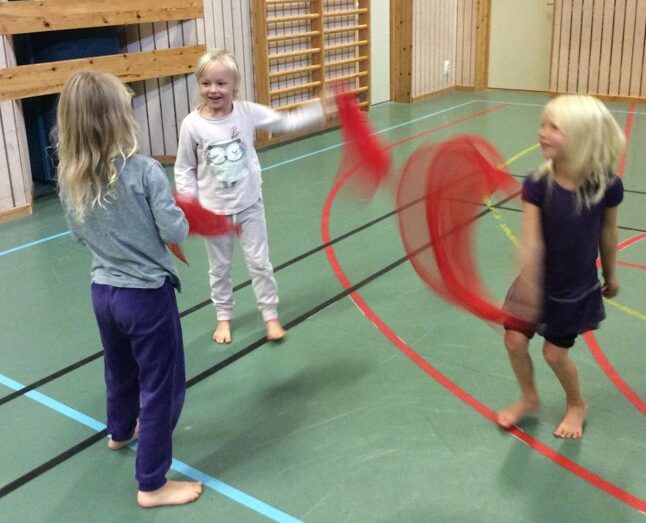![low_Cultural Children of Europe_LOGO[1].pdf](https://kulturprinsen.dk/wp-content/uploads/2023/02/low_Cultural-Children-of-Europe_LOGO1-scaled.jpg)
PROJECT PARTNERS
Institut for Børnekultur (projektejer)
CONTACT
Project manager: Maria Bach Boserup
Tel. 26 89 14 15
bos@kulturprinsen.dk
PROJECT PERIOD
2015-2017
HOME PAGE
culturalchildrenofeurope.com (defunct)
WHO SUPPORTS EUROPEAN CULTURAL CHILDREN?
European Capital of Culture Aarhus 2017
Culture Point North (under the Nordic Council of Ministers)
Central Jutland Region
Art and culture in everyday life with 0-8 year old children
A development and research project with Nordic and European dimensions
The aim is that through an everyday familiarity with art and culture in the youngest years, children will acquire a well-founded identity and a cultural base from which to tackle life's changes and challenges. The aim is to rethink the development of cultural children in Europe, who will be stronger and more capable of living as active citizens, professionals and audiences in the near and long term. In this way, the growing generation will be part of a qualitative uplift of the cultural field specifically and of democratic society in general.
The project European Children of Culture (EK), together with educators, teachers, artists, cultural mediators and researchers, will provide 0-8 year old children with the best opportunities to encounter art in their daily lives and rethink their work with cultural expression.
EK creates new cultural paths, new encounters, reflection and mutual inspiration across Denmark (DK), the Nordic countries and Europe, based on high artistic quality. EK rethinks, initiates, implements, further develops and exchanges both artistic and inter-aesthetic collaborations.
You can read more about European Cultural Children by expanding the points below:
The European Cultural Children (ECC) project will work with educators, teachers, artists, cultural mediators and researchers to give 0-8 year old children the best opportunities to encounter art in everyday life and rethink the work with cultural expression.
EK creates new cultural paths, new encounters, reflection and mutual inspiration across Denmark (DK), the Nordic countries and Europe, based on high artistic quality. EK rethinks, initiates, implements, further develops and exchanges both artistic and inter-aesthetic collaborations.
PURPOSE
- European Children of Culture aims to enhance children's musical, creative, social and learning competences by involving them actively, exploratively, experimentatively and co-creatively in cultural activities, both in day care and school as well as in the transition between the two.
- European Cultural Children will provide the adults who are around the children in their daily life with new competences, common language, mutual inspiration, focus on their own potential in cultural expressions and create new habits through the implementation of common methodology on how to engage each other in knowledge sharing and interdisciplinary reflection processes.
- European Cultural Children will offer artists and cultural mediators the same new competences in shared methodology as teachers and educators, in order to engage in joint and equal collaborative processes, in which all parties are curious and co-creative - without anyone losing their own professionalism.
METHOD: ACTION LEARNING
The above objectives will be achieved by working on a common methodology, which all parties will be trained and guided to apply during the development project. The methodology is action learning and in this process there are five phases:
- To examine one's own practice in order to discover something that arouses wonder and that one would like to explore.
- To organise the process on the basis of the AL model and draw up a process plan, which includes agreements on forms of documentation and reflection.
- To carry out actions together with the children and keep the focus on what is to be investigated.
- To note what is happening and examine how the chosen activities affect the situation, as well as documenting impressions and expressions.
- To share knowledge in the reflection room with the other people involved, based on the documentation and with a view to new action learning processes.
Aktionslæring er en metode, som fremmer nysgerrighed, som bevidstgør af valg af aktiviteter, der fastholder erfaringer samt åbner for dialog og videndeling både mellem fagfæller – pædagog til pædagog, lærer til lærer og kunstner til kunstner og på tværs af fagligheder. Hermed sætter EK rammer, som italesætter tavs viden, inspirerer på tværs af kulturer samt skaber fælles sprog på tværs af faglighederne. Institut for Børnekultur, som er projektejer, trækker bla. a. på erfaringer fra kompetenceudviklingsprojektet: ”Tusindben – nye møder i farver”, Viborg Kommune aug. 2013 L dec. 2014. https://kulturprinsen.dk/da/publikationer/tusindben
PARTNERSHIPS
EK distinguishes between core partners and cluster partners. Core partners have a number of mutual obligations that must be as comparable as possible in order to maximise the quality and benefits of both partners and the project. As cluster partners, there is more scope to set the agenda, to choose in and out of the EK framework, according to the daily life of each of them. EK is both a top-down and bottom-up project, developing and framing common methods, but leaving it up to each partner how long, how much and in which artistic forms of expression (music, dance, theatre, film, visual arts, storytelling and digital media) to work. You can thus participate in the EC with the different prerequisites that the EC will naturally encounter around DK, the Nordic countries and Europe.
INTERNATIONAL PERSPECTIVE
The focal point of EK will be two core municipalities in the Central Region of Denmark: Silkeborg and Viborg. These municipalities have been chosen because of their long experience in working with children, art and culture for the youngest. As cluster partners in the region, the following municipalities have agreed to participate: Skive, Ikast-Brande and Hedensted municipalities. In these municipalities EK will establish local working groups with participation from both practice level (teachers and educators from 2-3 kindergartens and 1 school) and from administration level (consultants from school, day care and culture). At Nordic level, core partnerships have been agreed with Bergen in Norway, Umeå in Sweden, Reykjavik in Iceland and Riga in Latvia. The EC is currently working to involve a number of core partners in the rest of Europe, for example from the Netherlands, Belgium, Germany, Poland, Italy and France. Each of the foreign core partners will be assigned a number of cluster partners, which the partners themselves will be responsible to some extent for servicing within the common framework of the EK.
ACTIVITIES AND TIMETABLE
2015:
- DK: The project is developed and anchored in 2 core and 5 cluster municipalities with selected schools, cultural and day-care institutions.
- Nordic & Baltic: The project is developed and anchored with 4 participating Nordic/Baltic core partners:
Practice/Planning:
- Kick-off seminar in DK with action learning for partners 19.-20.11.2015.
- Design of action together with the individual kindergartens/schools.
- Selection and recruitment of local artists/cultural mediators
- Starting up activities
- Exchange visits and jobswop
- Europe: The project is developed and anchored with European participating core partners: your municipality and selected schools, cultural and day-care institutions.
2016-17: Activities and jobswop between DK, Nordic/Baltic and European countries.
EXCHANGE AND JOBSWOP
EK arbejder på samme tid med udsyn – hvordan gør man andre steder? og indsigt – hvordan kan inspiration udefra påvirke mig til at blive bedre i min dagligdag? Disse spørgsmål søges bl.a. besvaret gennem udvekslingsbesøg og jobswop: som pædagog, lærer eller kunstner får man mulighed for fx gennem to uger at bytte job med en tilsvarende funktion hos en EK partner i nabobyen eller i et andet land. EK giver de voksne hverdags erfaringer med fra andre kulturer, man får mulighed for at opleve sig selv som en værdifuld del af et såvel lokalt som globalt fællesskab med de yngste børn, kunst og kultur i centrum. EK etablerer netværksgrupper lokalt, regionalt og landene imellem til gensidig inspiration, videndeling, erfaringsudveksling og relations opbygning. Gennem fælles metodiske tilgange skaber EK fælles kulturforståelse på tværs af såvel kommunegrænser som landegrænser. Der afholdes to internationale konferencer i 2016 og 2017, hvor metoder og resultater fremlægges. Der formidles tillige løbende lokalt, regionalt og nationalt gennem seminarer bl.a. målrettet de involverede professioner, gennem presse og gennem Institut for Børnekulturs publikationer.
AN EXAMPLE OF EC IN EVERYDAY LIFE
From three day-care centres and one school in the same local area, all educators, all primary school teachers and associated artists participate together with the local working group in a Kick-off day with, for example, a three-hour introduction to action learning by the affiliates from VIA UC and SDU. The start of 4 programmes with 2 visual artists and 2 dancers is agreed at each assigned location. Reflection sessions are prepared between the groups, the project's sparring of the reflection sessions is agreed, as well as how logbooks are to be kept and when the researcher will visit and participate in the action and reflection sessions. The year is planned with exchange visits to other EC partners' programmes and plans for the jobswop for the coming year are agreed. Everyone is invited to participate on the common EK digital platform, and given tools to share, upload and disseminate experiences between EK partners both locally and internationally.
SUCCESS CRITERIA
At the end of the EC in 2018, concrete:
- An existing network of an estimated 750 educators, teachers, artists/cultural mediators and researchers at European level who have worked with EC.
- Of which:
- Estimated around 500 from DK, Norway, Sweden, Iceland and Latvia alone who have been actively working with EK as core and cluster partners.
- Estimated around 250 as core and cluster partners from other European countries.
- Of which:
- Proven knowledge of how EC has contributed to the development of European children's creative, social and learning competences.
- Documented knowledge of how EC has contributed to the development of professional and collaborative competences among the involved countries' professions around 0-8 year olds.
- Evidence of changed practices in the majority of Danish municipalities involved in child culture practices for the target group 0-8 years based on EC.
Charter for European Cultural Children:
Here you can read the Charter of the European Children of Culture, which describes the overall vision of the cooperation in the project and the practical objectives that make the Charter operational.
European Cultural Children will work with a common methodology, which all partners will be trained and guided to use during the development project. The methodology is action learning and in this process there are five phases.
Read more about the method here and download the presentation of action learning: Presentation: Action Learning (PDF)
Aktionslæring er en metode, som fremmer nysgerrighed, som bevidstgør af valg af aktiviteter, der fastholder erfaringer samt åbner for dialog og videndeling både mellem fagfæller – pædagog til pædagog, lærer til lærer og kunstner til kunstner og på tværs af fagligheder. Hermed sætter EK rammer, som italesætter tavs viden, inspirerer på tværs af kulturer samt skaber fælles sprog på tværs af faglighederne. Institut for Børnekultur, som er projektejer, trækker bla. a. på erfaringer fra kompetenceudviklingsprojektet: ”Tusindben – nye møder i farver”, Viborg Kommune aug. 2013 – dec. 2014. https://kulturprinsen.dk/da/publikationer/tusindben
An educator says: "When you have been alone on a course, it is difficult to pass on when you come back. In our course with the artists, the whole kindergarten has been involved. Everything and everyone has been put into play."
Through joint seminar days, all participating educators, teachers, artists and all partners in EK are trained to work with action learning as a common method. Based on the same overall method, it becomes simple and meaningful for EK to work in many geographies.
Jobswop considered as a reciprocal exchange of 1-2 participants between 2 institutions/municipalities. There can be simultaneity in the mutual exchange, but there does not have to be. Jobswop can be established e.g. in the form of an EC 'twinning agreement'. Duration: minimum 3 days.
Jobshadowing considered as a shorter, unilateral visit to another institution, which is not binding in terms of. However, return visits can of course be arranged if both parties wish. Duration: minimum 3 days.
Delegation visit considered as a small delegation of participants (at least management + pedagogues/teachers) visiting another institution for a shorter duration.
Procedure
Når man ønsker at jobswoppe/shadowe/delegationsbesøge, er man altid velkommen til på egen hånd at finde en potentiel udvekslingspartner – eks. en venskabskommune. Efter accept fra Institut for Børnekultur booker man selv og kan få refunderet afholdte udgifter ved fremsendelse af dokumentation.
- Establishment of a twinning community. Exchanges before, during and after the course.
- Special focus on the child perspective: children meeting and exchanging digitally. Possibly with iPad tool.
Or focus on adult perspective: digital exchange (e.g. related AL etc.), between teachers + educators. - Delegation visits: e.g. 2+2 visiting (possibly from different local institution) institutions with 3 overnight stays.
Steering Group
- Ulla Voss Gjesing, Centerchef, Institut for Børnekultur, Viborg
- Maria Bach Boserup, Projektleder, Institut for Børnekultur, Viborg
- Mie Storgaard, Pedagogical Development Consultant, Viborg Municipality
- Ghita Warrer, Cultural Consultant, Silkeborg Municipality
- Inge Helboe Kruehoffer, School Consultant, Silkeborg Municipality
- Ragnhild Melbye, Project Coordinator, Silkeborg Municipality
- Anette Boye Koch, Lecturer in Daycare Education, VIA UC Teacher Education, Aarhus
- Herdis Toft, Lecturer, SDU
Core partners
Denmark
Viborg Municipality
- Mie Storgaard, educational development consultant
- Heidi Therkildsen, consultant B&U
- Bodil H. Lund, Head of Day Care, Dalens daginsinstitutioner
- Charlotte Torpdahl Laursen, Deputy Head, Dalens Day Care Centres
- Birthe Nielsen, Head of Day Care, Teglgården
- Ida Jensen, Head of School, Søndre Skole
- Benny Sørensen, SFO-leiter, Søndre Skole
- Lene Rikke Bresson, Head of Viborg Culture School
Silkeborg Municipality
- Ragnhild Melbye, Project Coordinator
- Rikke Charlotte Svenningsen, Head of Day Care, Blæksprutten
- Margit Ørnfeldt Nørgård, Deputy Head, Blæksprutten
- Girsti Holm Nielsen, Head of Department, Alderslyst
- Helle Nielsen, daily manager, Børnegården
- Per Kristjansen, daily manager, Children's House
- Ib Jørgensen, Head of SFO, Sølystskolen
- Claes Søndergaard Pedersen, Headmaster, Sølystskolen
Cluster partners
DENMARK
- Ikast-Brande
- Hedensted
- Silkeborg
- Skive
- Viborg
SWEDEN
- Örnsköldsvik
NORWAY
- Bergen
ICELAND
- Reykjavik
LATVIA
- Riga
Articles and mentions of European Cultural Children from the Nordic and Baltic countries
Denmark
Sweden
Norway
Latvia
Iceland
Newsletter of the Reykjavik City Institute for Education and Youth - read about the Icelandic CCE project here.
